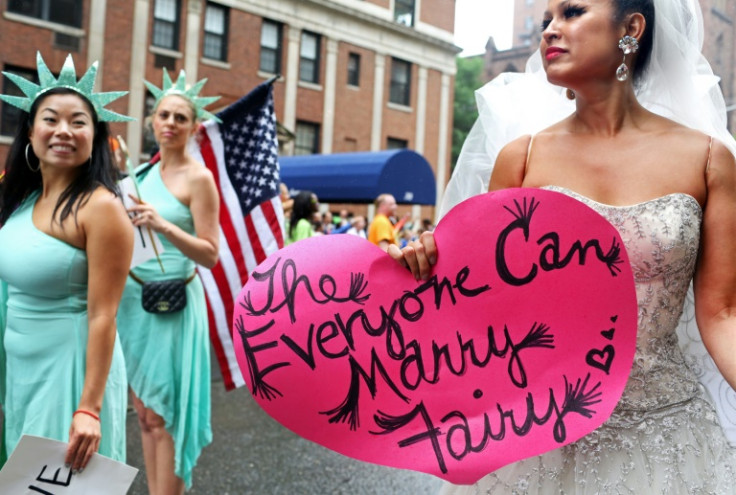
With Thai lawmakers voting to legalise same-sex marriage Tuesday, we look at the situation across the globe.
While the right to marry has already been legalised in 35 other countries, homosexuality remains banned in many parts of the world.
On October 1, 1989, for the first time in the world, several gay couples in Denmark tied the knot in civil unions, giving their relationships a legal standing but falling short of full marriage.
It was the Netherlands that first allowed same-sex marriages in April 2001.
Since then another 20 European countries have followed suit: Andorra, Austria, Belgium, Britain, Denmark, Estonia, Finland, France, Germany, Greece, Iceland, Ireland, Luxembourg, Malta, Norway, Portugal, Slovenia, Spain, Sweden and Switzerland.
Some European states have authorised same-sex civil union but without having legalised gay marriage, including Italy, Hungary, Croatia, Cyprus, Latvia, Czech Republic and the principalities of Liechtenstein and Monaco.
The European Court of Human Rights in 2023 found Bulgaria, Poland, Romania, Russia and Ukraine guilty of failing to recognise same-sex couples.
Canada was the first American country to authorise same-sex marriage in 2005.
In 2015 the US Supreme Court legalised gay marriage nationwide at a time when it was banned in 14 out of 50 states.
However the United States' first gay marriage actually took place in 1971, when a Minnesota couple obtained a marriage licence thanks to a legal loophole.
The marriage was eventually recognised in March 2019, after a five-decade legal battle.
In Latin America nine countries allow same-sex marriages: Argentina, Brazil, Chile, Colombia, Costa Rica, Cuba, Ecuador, Mexico and Uruguay.
Bolivia recognises civil unions between people of the same sex but not marriage.
In May 2019 Taiwan became the first territory in Asia to allow gay marriage.
Nepal's Supreme Court last year issued an interim order allowing all same-sex and trans couples to register their marriages, and in November, an LGBTQ couple acquired a marriage certificate.
Other couples have followed in their footsteps.
Challenges remain, however. The court order directed the government to establish a separate temporary register until laws are formulated.
Japan is the only G7 member not to authorise marriages or civil unions for all. But several local administrations have begun to officially recognise people of the same sex living together as couples.
Australia (2017) and New Zealand (2013) are the only places in the wider Asia-Pacific region to have passed gay marriage laws.
Vietnam decriminalised gay marriage celebrations in 2015 but stopped short of full legal recognition for same-sex unions.
In the Middle East, where LGBTQ people face grave rights abuses, Israel leads the way, recognising same-sex marriages that are sealed elsewhere although not allowing such unions in the country itself.
Several countries in the conservative region still have the death penalty for homosexuality, including Saudi Arabia and the United Arab Emirates.
South Africa is the sole nation on the African continent to allow gay marriage, which it legalised in 2006.
Around 30 African countries ban homosexuality, with Mauritania, Somalia and Sudan having the death penalty for same-sex relations.










